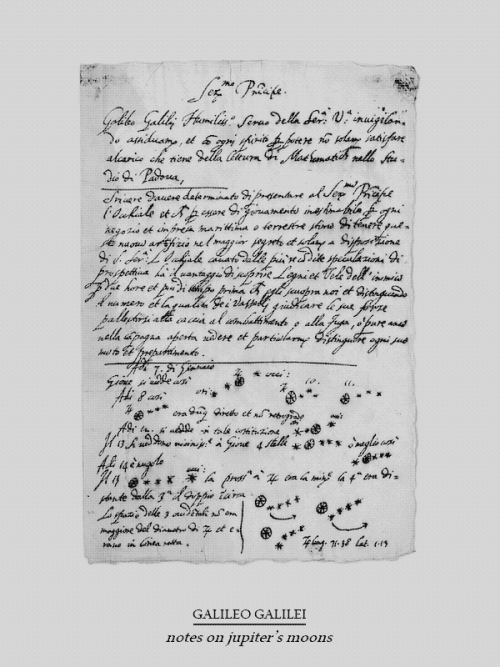Drive W/ DBT (Dialectical Behavior Therapy) Books
Drive w/ DBT (Dialectical Behavior Therapy) Books
I thought I’d share some DBT books that I’ve found in case anyone finds them useful! Click here for a small Drive folder of 8 books (will add more if I can find more or if anyone has recommendations!)
If you don’t know what DBT is: DBT stands for dialectical behavior therapy and was initially developed to treat borderline personality disorder (BPD), but has also been used for other mental illnesses. Personally, I’ve used DBT for anorexia, generalized anxiety disorder, depression, and OCD with therapists, so I know it’s at least used for those disorders. DBT was first developed by Marsha M. Linehan, a psychologist who has BPD herself, which I think is interesting and important since in my experience, it can be difficult to find clinicians who can actually relate to the experience of having a mental illness. One of the best things about DBT in my opinion is that you can do it yourself! My personal experience in DBT has mostly been as a patient in formal hospitalization or partial hospitalization settings, but it’s very adaptable, so I think it’s great if you are unable to access therapy or other resources.
There are four basic modules of DBT: mindfulness, which is based on accepting one’s present situation without judgement; distress tolerance, which focuses on developing skills to get through intense emotions or crises without resorting to self-destructive behavior; emotional regulation, which emphasizes recognizing and adjusting emotions; and interpersonal effectiveness, which focuses on communication skills with others. Personally, I find distress tolerance and emotional regulation the most helpful, but everyone’s different!
More Posts from Spanishleaf and Others
Top 10 my favourite anime tv series.

10. Cossette no shouzou.
Why?
Powerful narrative through image and stage direction. It is the perfect example to talk about artistic direction.

9. Humanity has declined.
Why?
Powerful and creative satire, and it is so freaking funny, I love it.

8. Kaiba.
Why?
Explores interesting topics with such a good technique. We all now that Masaaki Yuassa is a good director.

7. Tha Tatami Galaxi.
Why?
Perfect aesthetic and direction. I wish it was more ambitious when exploring the topic of coming of age tho.

6. Puella Magi Madoka Magica.
Why?
Let me say this: this is the most ambitious, creative, imaginative and effective artistic direction I have EVER seen.

5. Shoujo Kakumei Utena.
Why?
A master class in symbolism. There are so many details, so many possible explanations that I just cannot state what is the actual topic of the show.

4. Kyousogiga.
Why?
A master class in rythm and narrative. THIS is jist MAD but high quality that I can just define it as psychodelic.

3. Haibane Renmei.
Why?
Such a nice critique and deconstruction. The atmosphere is perfect and well executed and the topic is deep and explored with humanity.

2. Serial Experiments Lain.
Why?
Just everything, it is so enigmatic and ambitious and creative and effective in every single aspect, it is just perfect.

1. Neon Genesis Evangelion.
Why?
Creative, ambitious, perfect symbolism, perfect cohesion betwee topics and devises used in the script and the audiovisual narrative…and the best part, it is HUMAN, just HUMAN. So powerful and deep but so natural. I looooove it.


This is an unposted overview of my planner last school year. Four more days, and I will be a 3rd-year college student🤞🏻
Guys please check out this google drive folder full of amazing PDFs that sociologist anon set up, there is so much good reading in here
There’s stuff on black feminism, disability, transgender history, sex & consent, and so many other things, it’s genuinely just so much holy shit please just look at it
Flowers in Spanish & Italian

Spanish - Italian - English
la rosa - la rosa - rose
el girasol - il girasole - sunflower
la margarita - la margherita - daisy
el tulipán - il tulipano - tulip
el lirio - il giglio - lily
el jazmín - il gelsomino - jasmine
la amapola - il papavero - poppy
la azalea - l’azalea - azalea
la belladona - la belladonna - belladonna
el clavel - il garofano - carnation
el geranio - il geranio - geranium
el iris - il giaggiolo - iris
la lavanda - la lavanda - lavender
la lila - il lillà - lilac
el ave del paraíso - la strelitzia - bird of paradise
la magnolia - la magnolia - magnolia
la orquídea - l’orchidea - orchid
la peonía - la peonia - peony
la petunia - la petunia - petunia
la prímula - la primula - primrose
la violeta - la violetta - violet
Tarot Inspired Journal Prompts
Fool: what is something new you are doing or want to do?
Magician: what is a magical way to enhance my day? Or, how can I be more like the magician?
High Priestess: what are my thoughts on divination? What about intuition?
Empress: what part of myself do I want to grow/nurture?
Emperor: what part of my life needs me to take authority? How can I?
High Priest: what are my personal traditions? How is my spirituality unique to me?
Lovers: what relationships mean the most to me?
Chariot: what part of my life needs me to be more combative/ warrior-like?
Strength: what part of my life should I face with courage?
Hermit: what do I need to do alone more often? What do I need to do with others more often?
Wheel of Fortune: what do I think about luck, fate, and/or fortune?
Justice: when do I need to focus on legality vs fairness? Or, What may cause me to seek justice/retribution?
Hanged Man: what have/will I sacrifice for -x-? What am I never willing to sacrifice? What will I easily give up?
Death: what is something personal I want to end or change? What is something that will end or change no matter how I feel? How can I accept it?
Temperence: what part of my life needs more patience? What part needs more balance? How can I achieve both?
Devil: what is a primal desire I have? Should I grant it to myself? Why or why not? How can I get what I want?
Tower: what can I learn from the current or recent chaos/disaster in my life?
Star: what do I hope for? How can I get it?
Moon: what part of my life is best kept private? Why?
Sun: what makes me happy?
Jusgement: what part of me needs reflection? What is a fair assessment of that part?
World: what parts of my life have been fulfilled? What parts are still lacking?
Websites for Japanese Learners
! click on website name to be redirected !
all websites can be used for free and without subscribtion (thats why japanese101 isnt included)
-> apps for japanese learners (soon)

1. JLPT Sensei
study guides (N5-N1)
includes grammar, kanji, vocabular, adjective, verb and other lists for orientation when studying
free JLPT practice tests
2. Japanese Verb Conjugator
automatic verb conjugator
verb database
kanji database & kanji tester
over 180,000 example sentences with sound
3. Tanoshii Japanese
japanese-english dictionary (with stroke order!)
pratice games & interactive lessons (Kanji Mahjong etc.)
learning resources (japanese novel, textbook, magazine, movie recommendations)
4. Jisho
fast and smart japanese-english dictionary
draw and radical function apart from keyboard search
searching by topic and categories by adding #[topic/category]
JLPT levels, sentences, particles, counters, names included
5. Map Quiz
world map quiz in japanese
divided into continents and north, east, south and west
6. Japanesetests4you
free JLPT N5-N1 reading and listening tests
free JLPT N5-N1 vocabulary, kanji and grammar lists + tests
7. Shiritori Online
Shiritori (しりとり) is a popular japanese word game and is ideal to exercise vocabulary for japanese learners. 2 or more players take turns saying a word that starts with the last kana of the previous word. The game ends when someone answers with a word ending with -n (ん) because there are no words starting with ん.
it is up to the players whether all forms of a hiragana (kana and its diacritics; は,ば and ぱ etc.) are allowed or not (e.g やぎ -> きよう).
example: りんご (apple) -> ごりら (ゴリラ) (gorilla) -> らーめん (ラーメン) (ramen). The last person who said ramen loses because the word ends with -n (ん). Instead the person could have saidらま (ラマ) (llama) (e.g).










Neurodivergent Identity Part 2 (Part 1)
Complete set at TraumaGeek
How to Really Comprehend a Scientific Paper
**credit to my research advisor, she’s an amazing mentor and I aspire to be just like her someday :)
Read the abstract. Write down what the paper says it is going to be about.
Read the introduction. Write down what the paper says it is looking to accomplish and how.
Read the conclusion. Write down what the paper actually did accomplish.
Go through and find all the pictures, graphs, or diagrams. Write notes explaining these images to yourself.
Read the whole paper start to finish. Write a summary of the paper as though you are explaining it to a layperson, and then another summary as though you are explaining it to a colleague.
Throughout all of the above steps:
If there are words you don’t know google them and write down the definitions
If the paper defines a formula, law, variable, etc in a certain way write that down
If there are references to or recommendations of other literature write those down. After the last step if there’s anything you’re uncertain about or would like more information on look to that list for further reading
How I am planning on going from A2 to B2 Spanish in 4 months

Month 1
I am going to try and work through a massive textbook that I have (here is the link). I’m going to learn the vocabulary using anki, and do all of the exercises, though I won’t write notes to save time.
After I have finished each chapter, I will have a conversation with my friend in Spanish, and write a page in my journal.
I will also listen to lots of Dreaming Spanish.
Months 2 - 4
I will listen to Dreaming Spanish, Intermediate Spanish Podcast, Notes in Spanish Intermediate, Españolistos and News in Slow Spanish (Spain).
I am going to shadow Easy Spanish videos.
I’ll use LingoPie to watch TV shows and films in Spanish.
I’m going to keep a daily journal in Spanish (which I will post on Journaly).
I’m going to have thrice weekly speaking sessions with my friend.
I’m going to read lots of fanfiction in Spanish.
I will also watch YouTube videos in Spanish.
I’m going to read El Mundo daily.
I’ll try to write an essay once every two weeks.
That’s my plan and I hope it’ll be enough. Wish me luck!
-
 almostpsyche liked this · 1 month ago
almostpsyche liked this · 1 month ago -
 thekentraptor liked this · 11 months ago
thekentraptor liked this · 11 months ago -
 wawhii liked this · 1 year ago
wawhii liked this · 1 year ago -
 artimies6 liked this · 1 year ago
artimies6 liked this · 1 year ago -
 radioactivepigeons liked this · 1 year ago
radioactivepigeons liked this · 1 year ago -
 insanelyduende liked this · 1 year ago
insanelyduende liked this · 1 year ago -
 giving-in-is-pointless reblogged this · 1 year ago
giving-in-is-pointless reblogged this · 1 year ago -
 tinyshe liked this · 1 year ago
tinyshe liked this · 1 year ago -
 teafiendblog liked this · 1 year ago
teafiendblog liked this · 1 year ago -
 feenyxblue reblogged this · 1 year ago
feenyxblue reblogged this · 1 year ago -
 chubby-elf-hux liked this · 1 year ago
chubby-elf-hux liked this · 1 year ago -
 bookwormsontherun liked this · 1 year ago
bookwormsontherun liked this · 1 year ago -
 some-ghost-we-will-call-i reblogged this · 1 year ago
some-ghost-we-will-call-i reblogged this · 1 year ago -
 cealtrachs liked this · 1 year ago
cealtrachs liked this · 1 year ago -
 traumacatholic reblogged this · 1 year ago
traumacatholic reblogged this · 1 year ago -
 georgiefemme liked this · 1 year ago
georgiefemme liked this · 1 year ago -
 maggots-in-the-veins liked this · 1 year ago
maggots-in-the-veins liked this · 1 year ago -
 turquoise-trauma liked this · 1 year ago
turquoise-trauma liked this · 1 year ago -
 turquoise-trauma reblogged this · 1 year ago
turquoise-trauma reblogged this · 1 year ago -
 angelfromipanema liked this · 1 year ago
angelfromipanema liked this · 1 year ago -
 aarrrrrrrrrrrr reblogged this · 1 year ago
aarrrrrrrrrrrr reblogged this · 1 year ago -
 eelsresource reblogged this · 1 year ago
eelsresource reblogged this · 1 year ago -
 thedarkadventures reblogged this · 2 years ago
thedarkadventures reblogged this · 2 years ago -
 smjitsu liked this · 2 years ago
smjitsu liked this · 2 years ago -
 jackallnope liked this · 2 years ago
jackallnope liked this · 2 years ago -
 grandma-course liked this · 2 years ago
grandma-course liked this · 2 years ago -
 fiftydaysoo liked this · 2 years ago
fiftydaysoo liked this · 2 years ago -
 myfairverona liked this · 2 years ago
myfairverona liked this · 2 years ago -
 a-concert-just-for-me liked this · 2 years ago
a-concert-just-for-me liked this · 2 years ago -
 karl-marxs-lil-pogchamp liked this · 2 years ago
karl-marxs-lil-pogchamp liked this · 2 years ago -
 homoheroine reblogged this · 2 years ago
homoheroine reblogged this · 2 years ago -
 homoheroine liked this · 2 years ago
homoheroine liked this · 2 years ago -
 all-thefandoms liked this · 2 years ago
all-thefandoms liked this · 2 years ago -
 cadaverofdaze liked this · 2 years ago
cadaverofdaze liked this · 2 years ago -
 feefaii liked this · 2 years ago
feefaii liked this · 2 years ago -
 buttman2c liked this · 2 years ago
buttman2c liked this · 2 years ago -
 fellty liked this · 2 years ago
fellty liked this · 2 years ago -
 candyheartsjubilee reblogged this · 2 years ago
candyheartsjubilee reblogged this · 2 years ago -
 bisexualbandgeek reblogged this · 2 years ago
bisexualbandgeek reblogged this · 2 years ago -
 bisexualbandgeek reblogged this · 2 years ago
bisexualbandgeek reblogged this · 2 years ago -
 bisexualbandgeek liked this · 2 years ago
bisexualbandgeek liked this · 2 years ago -
 kvietka reblogged this · 2 years ago
kvietka reblogged this · 2 years ago -
 kvietka liked this · 2 years ago
kvietka liked this · 2 years ago -
 sobercook liked this · 2 years ago
sobercook liked this · 2 years ago






